Author’s Note: In the process of analyzing the impact of the genre of Fairy Tales on this specific episode of SSD, I unearthed more thoughts than could be managed in this post! Let’s just say that an original postscript with further notes on fairy tales got rather long, and turned into a separate post! Watch for it—it’s filled with lots of input from other well-known story-crafters, and speaks to all of us as creators, writers, and artists.
To Whom It May Concern & The Wizard of Oz
| Theresa Capadiamonte lives life with passion, whimsy, and a flair for the dramatic; she takes nothing for granted, is not afraid of big dreams, and brings light and life to the POstable world. Her character has a fairy-tale optimism, tempered by a real aptitude for dreaming big and having the spunk and work ethic to follow up on those dreams. Thus, Theresa Capadiamonte is the perfect character to provide a window into all that fairy-land has to offer, with its fantastical adventures of uncertainty mixed with satisfying happy never-endings. In the case of “To Whom It May Concern,” that fairy tale window is a link to another well-known world, the land of Oz. By the last scene of the episode, a literary commentary exists between the POstable world and Oz. As a result, the story draws close connections to the often-bittersweet nature of relationship and life, giving us a multicolored blend of nostalgia and bits of fantasy, and a hint of what J.R.R. Tolkien called “faerie”—all a curious melding of loss and belonging. |
The Connection to Oz
When this SSD episode occurs, the POstables are just beginning to learn about friendship and teamwork (how could we forget Oliver’s notable line about Shane being “brazenly manipulative”?). Shane is so new to the team she has no desk—of necessity, Oliver recruits Norman to create one. Rita has dreams she is choosing to keep hidden away. And there is the issue of a letter needing to be delivered to an illusive recipient. The journey of the POstables is not unlike the story of Dorothy and her friends in Oz, as they learn to care for one another, to understand each others’ weaknesses, and to join in a common cause.
| There are two notable scenes within this SSD episode that draw our attention to the link between the world of the POstables and the world of Dorothy and her friends. The first is the scene where Theresa Capadiamonte is rehearsing for her role in the upcoming play, The Wizard of Oz, and Rita is standing in for Dorothy. The second is the already-mentioned ending scene, staged after Theresa ’s performance in the play, which we will discuss in more detail for its unique perspective of theme and story. |
Rehearsal
Because of Theresa ’s dialogue and the ensuing scene with Buzz, we in the audience are left to wonder about home and belonging, and how we go about finding it; Theresa ’s words, and the illusion to Dorothy’s predicament and revelation are the perfect context for exploring the nature of Buzz’s transformation and return “home.” The last part of the scene shows us Buzz’s preparation (his shave, haircut, and new clothes), just as the “rehearsal” captures the scene of Dorothy’s preparation—and foreshadows real-life Teresa’s (yet unknown) transition from the postal service to the stage.
After The Performance
| If the scene capturing a rehearsal initiated our anticipation for home (finding a place of belonging), the ending scene inaugurates the real performance, the moment of return and realized belonging—the moment of coming “home.” This is Buzz’s story at the graduation, and it is Teresa’s story through the lens of Dorothy’s adventure in Oz. When Theresa performs the role of Glinda in the community performance of The Wizard of Oz, she discovers her joy in the role, a joy that leads her to make a decision to leave the postal service. The POstables are appropriately surprised, and the place of congratulation abruptly becomes the place of departures. As in “rehearsal,” we are set up yet again to frame the story through a familiar scene; this time, we begin to see that we are more deeply influenced by Dorothy’s story than before. The ending scene is crafted as if to invite the POstables to be actors in the same setting and situation as Dorothy herself. Glinda, the Good Witch, walks to greet them; we glimpse the Tin Man, the Scarecrow, and the Lion in the background; even Toto runs through the scene. We are as it were in Oz itself (as we find ourselves at the end of Baum’s story), taking leave of good friends and at the same time discovering friendship. It is a defining place, the stage of goodbyes. It teaches us about the value of others, and causes us to recognize our own belonging. At this moment, we look back on the episode, and all the SSD story that has come before, and can see the journey of the POstables in the light of one of its beauties—the valuing and cultivating of friendship. |
Teresa’s Gifts
| Theresa’s journey was meaningful. She could have followed her acting dreams long before, but there was a beauty to her faithfulness in the postal service that had a particular influence on the POstables. Her presence in “rehearsal” and her performance led the four friends into a world of wonder where the fantastical spoke to the real world and colored it with a brighter picture than is otherwise seen—a picture of friendship and home. Theresa urged the POstables to cultivate friendship, that kind of belonging that comes from appreciating one another, challenging us to step outside of ourselves and look to the care of others. Friendship enables each of us to experience the true value of “home.” We have seen it before and we see it again: unexpected journeys make the greatest stories, especially when one travels with friends. |
"Your Silver Shoes will carry you over the desert," replied Glinda. "If you had known their power you could have gone back to your Aunt Em the very first day you came to this country.”
"But then I should not have had my wonderful brains!" cried the Scarecrow. "I might have passed my whole life in the farmer's cornfield."
"And I should not have had my lovely heart," said the Tin Woodman. "I might have stood and rusted in the forest till the end of the world."
"And I should have lived a coward forever," declared the Lion, "and no beast in all the forest would have had a good word to say to me."
"This is all true," said Dorothy, "and I am glad I was of use to these good friends. But now that each of them has had what he most desired, and each is happy in having a kingdom to rule beside, I think I should like to go back to Kansas."
| I almost titled this blog, “On Coming Home.” Home is the end of Dorothy’s story, and the end of Buzz’s story too. Home is where our hearts are safe, where simple things like fairy tales are our delight, and where the bright hope of belonging lives. Seeking home is life’s long adventure. In Frank Baum’s story, Dorothy returns to Kansas. Theresa ’s “Kansas” is the stage. But Buzz’s story is the most real, and—graciously in this episode—the most generous in its portrayal. Perhaps the POstables do not have what each “most desired,” with “a kingdom to rule beside,” as in the land of Oz. But they have not lost the most important thing. A few episodes later, in The Treasure Box, Norman says (in a line that could have come out of a fairy tale), “Friends don't leave friends locked in bank vaults. And we're friends. Right?” Shane responds with the essential truth, “Yes, Norman. We're friends.” |
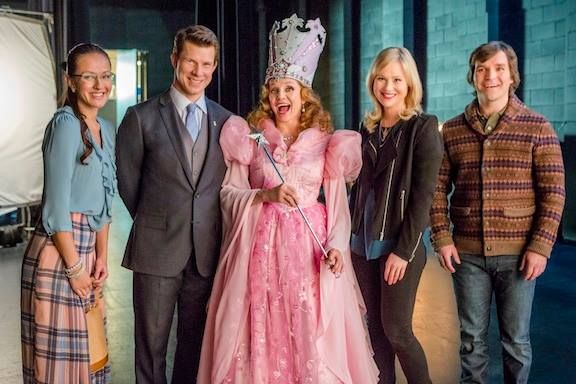
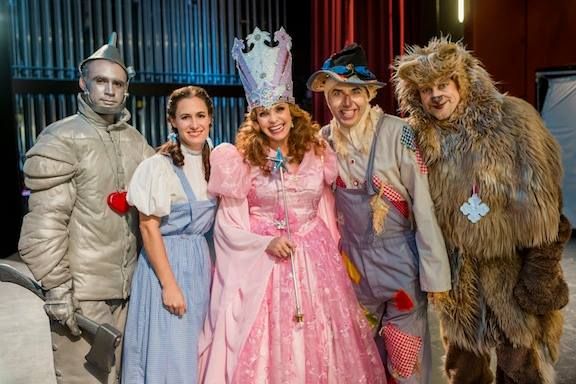
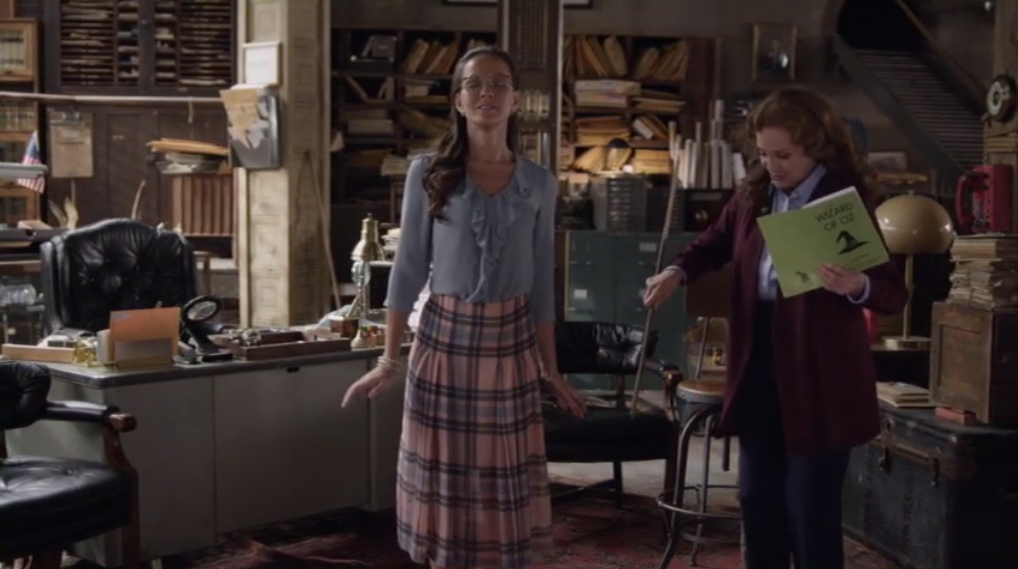
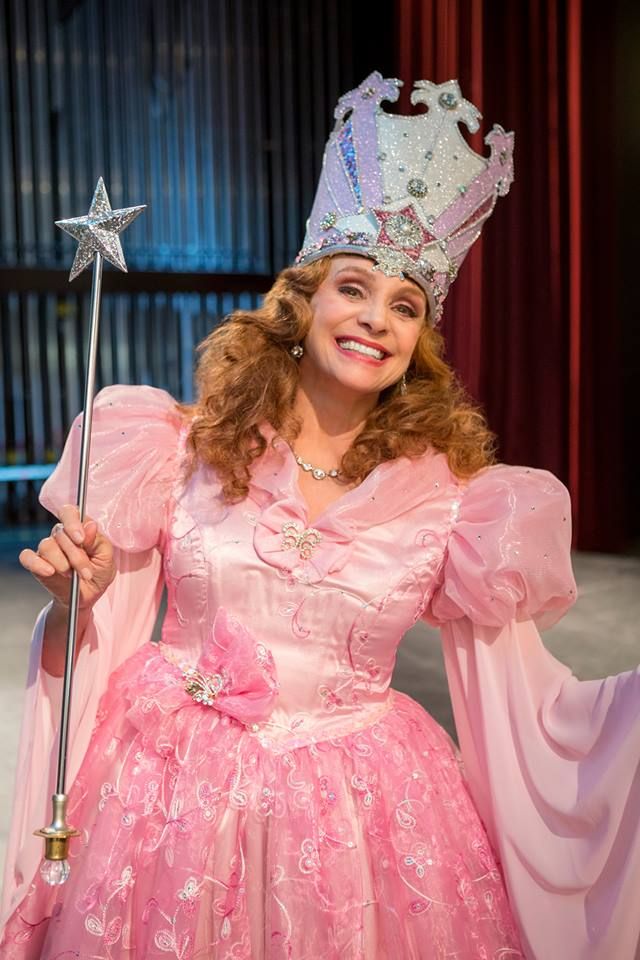
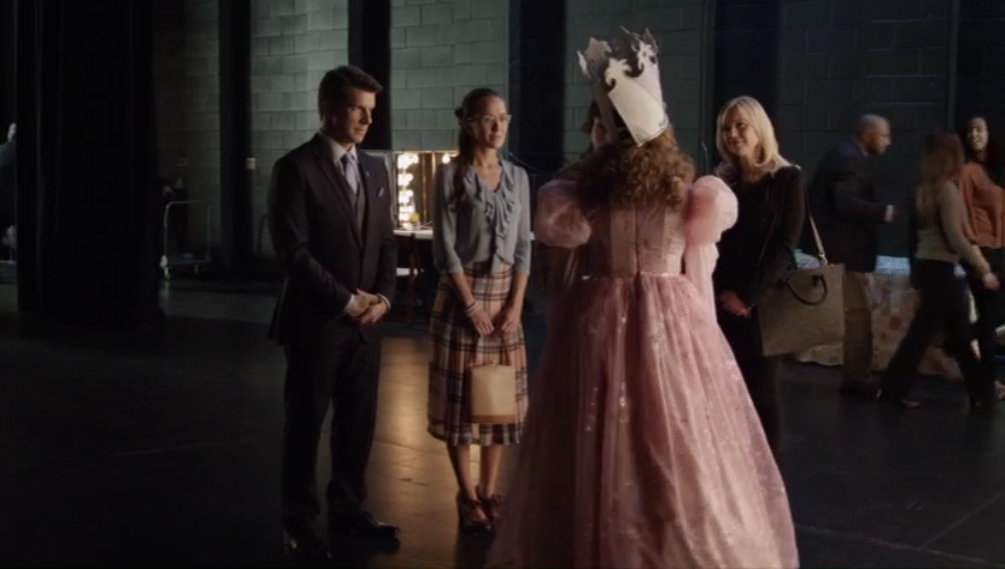
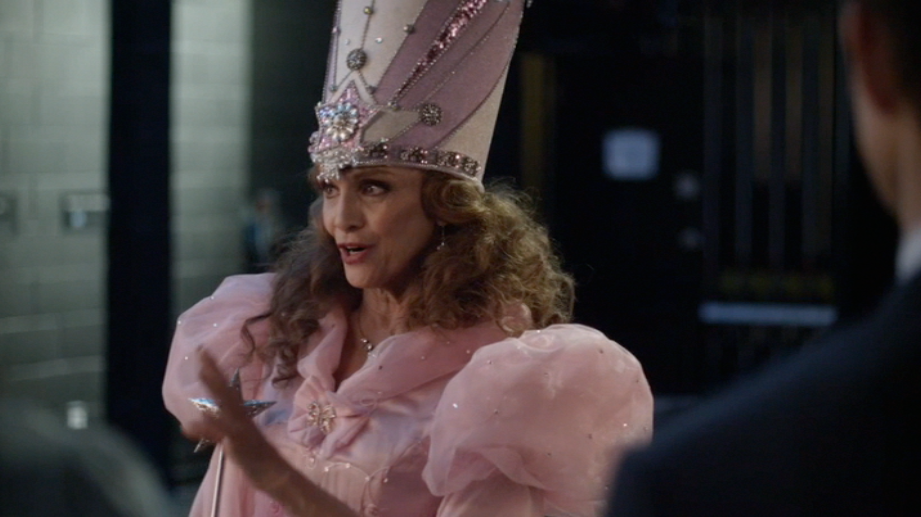
 RSS Feed
RSS Feed
